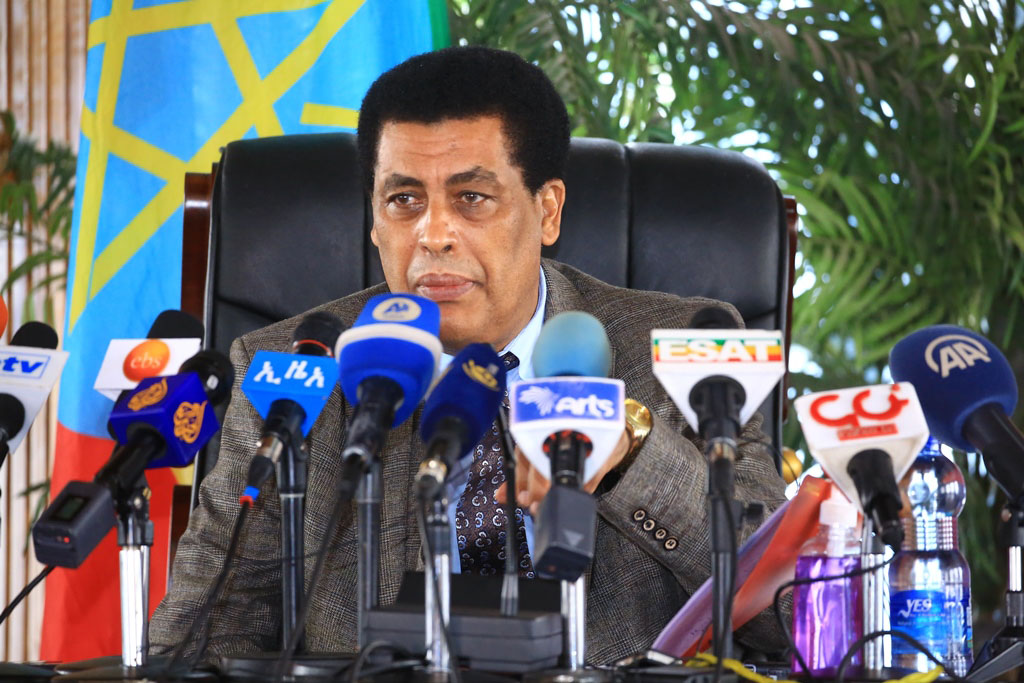
Ethiopia’s Foreign Ministry announced Friday that it is not seeking a binding agreement with Egypt and Sudan on the contentious Grand Ethiopian Renaissance Dam that it is constructing on the Blue Nile river, the main tributary of the Nile river.
During a briefing to reporters, Ethiopian Foreign Ministry spokesperson Dina Mufti said that his country is instead seeking a guiding agreement that can be modified as needed.
“We are not looking for what they call a binding agreement, we are looking for a kind of an agreement that we can review whenever the need arises,” Mufti said.
He noted that recent dam negotiations have seen a great convergence on technical issues, with only legal differences left requiring further negotiations.
Mufti added while Ethiopia is able to fill the dam’s reservoir within three years due to the heavy rain season, the filling process has been extended to seven years.
Ethiopia remains eager to meet the concerns of Egypt and Sudan, Mufti assured, and seeks a profitable agreement in the common interest of all three countries.
The African Union on Friday called on Egypt, Sudan and Ethiopia, with the support of experts and observers from the AU, to begin working together to finalize a binding agreement regarding the dam’s filling and operating.
In a statement, the union said that a meeting of the bureau of AU heads of state and governments agreed on July 21 on a process for finalizing negotiations on an agreement, including a comprehensive agreement on future Blue Nile developments as well.
On June 14, Ethiopia announced the initial filling of the Renaissance Dam, leading Egypt to request urgent official clarification from the Ethiopian government about the validity of the news.
Spokesperson for the Foreign Ministry Ahmed Hafez confirmed at the time that Egypt continues to follow developments of this issue.
Egypt retains its historical rights to the waters of the Nile, abides by international resolutions and laws in this regard, rejects any unilateral measures, and demands that Ethiopia adhere to the principles of international law, he added.
Egypt, which relies considerably on fresh water from the Nile, has voiced fears that the GERD would negatively impact the country’s water supply, especially in light of overpopulation fears, and has insisted that measures be put in place to protect downstream countries in case of drought during the dam’s filling process.
Ethiopia, on the other hand, has stressed the importance of the project to bolstering its economy, where more than half of the population currently lives without access to electricity.




